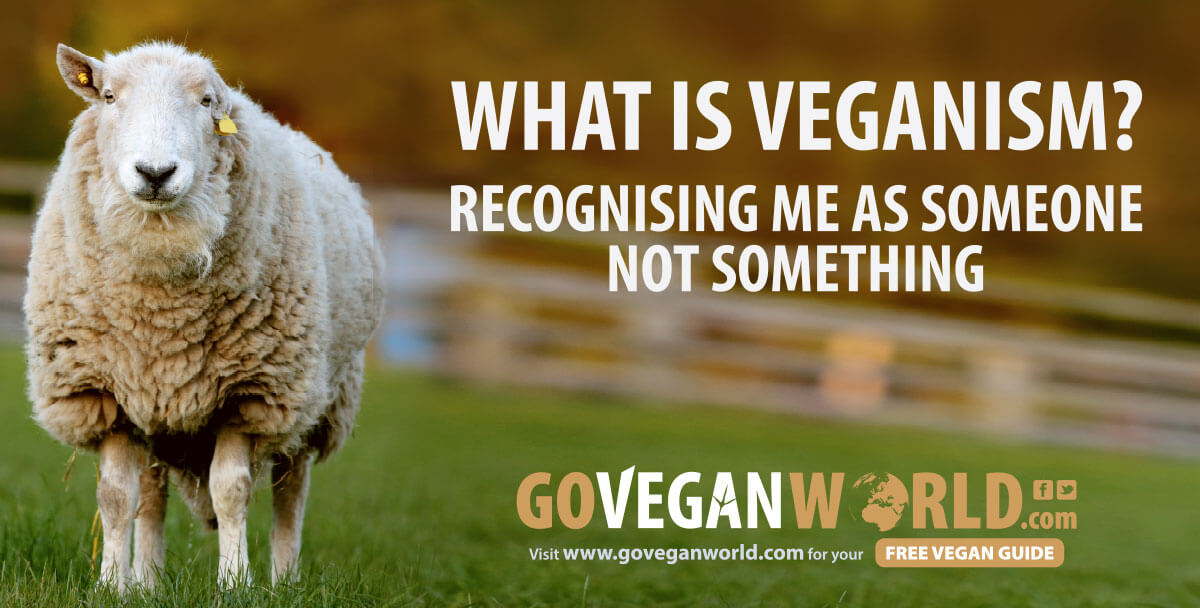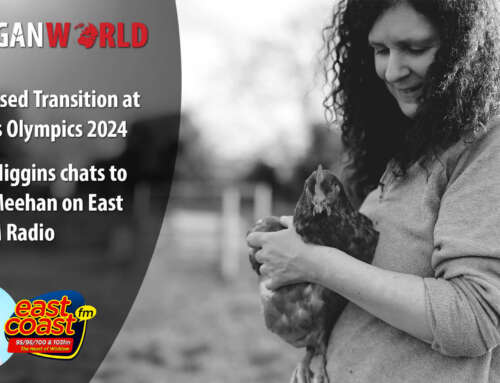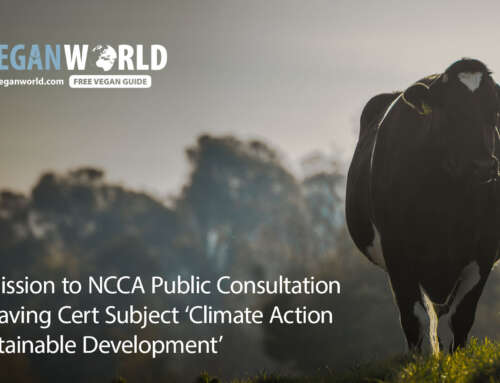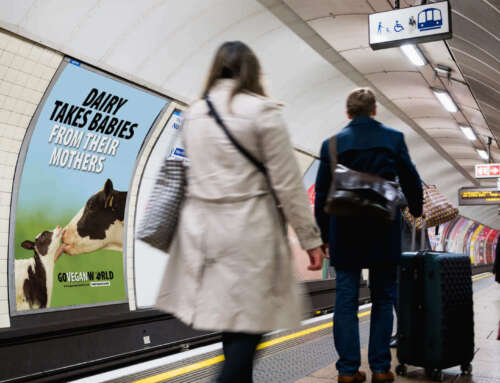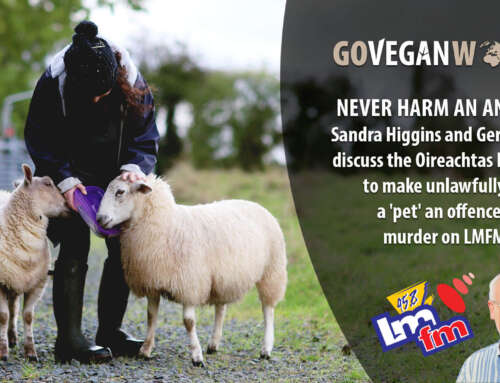If they cared they wouldn’t profit from killing them. If they were fair they would not regard themselves as their ‘owners’.
It seems that a lot of people still do not understand the reason for veganism and the rationale for forms of activism such as the Go Vegan World billboards. Those who profit from animal use still defend themselves by referring to the standards of welfare in which the animals are kept while they are exploited prior to being killed. Like the farmer behind a recent ‘pro-farmer’ billboard campaign in Ireland, they think that if they demonstrate sufficient ‘care’ and ‘love’, they can somehow hide the fact that they will send these animals to their deaths unnecessarily. They also misunderstand that animal rights activists are not ‘anti-farmer’; we are anti-animal agriculture and we understand that farmers are used as pawns in a larger, highly exploitative system that profits from the unjust work it demands of them.
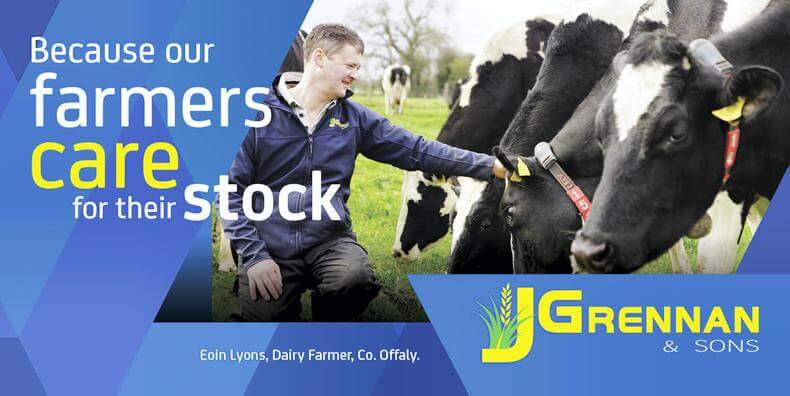
Our objection as vegans and animal rights activists is not to a lack of love or care. It is to the lack of respect for animal rights. Our objection is not to the standards of treatment or ‘welfare’ on farms or in slaughterhouses. Our objection is to their use by humans in the first place because that use is unnecessary and because it violates their fundamental rights not to be owned, used or killed.
Let’s be very clear about what animal welfare means: animal welfare is the legal, standard practice by which sentient, feeling beings are bred into life to be killed unnecessarily for profit. Animal welfare guidelines mean that the physical and psychological feelings of the animals used for profit will always take second place to the financial benefit of the industries that use them. Animal welfare standards, therefore, include guidelines on hyperconfinement, mutilation, selective breeding, the separation of mothers from their babies, and brutal, violent methods of killing. How could welfare standards be different when there is no right way to use and kill animals? The problem is the terrible lie the industries have fed the public so that the term animal welfare which dictates how defenceless animals can be harmed and killed, has come to be viewed through the bucolic lens of a form of respect and care.
The crux of the problem that other animals face at human hands is contained in this very billboard: it is the reference to them as ‘their stock’. Other animals are not our property. They are not stock. They are sentient beings whose lives we have misappropriated and whose bodies we have commodified for profit.
Other animals were domesticated a few thousand years ago for use by humans. Prior to that they lived alongside us on the earth in social groups, rearing their offspring, and engaging in purposeful behaviour that enhanced their survival in the wild. They were free. They lived until the end of their natural lifespans. Since we domesticated them we have not only confined and controlled every aspect of their lives; we have selectively bred them to maximise the amount of flesh, milk and eggs we can take from them. Our use of them is completely indifferent to the fact that they are sentient like us: we use them as objects or resources to meet our habits, traditions and taste and we comfort ourselves with the fairy tale that welfare standards are something positive than enhance their lives and deaths instead of a set of guidelines on how to maximise profit from exploitation and killing.
At all times the use of other animals for food, clothing, research, entertainment and labour has been for profit. That profit benefits a few and enslaves the many. It not only kills billions of animals every year, it is causing devastating harm to humans too. A growing body of evidence advocates that we need to replace animal products with plant foods for the good of our health and in order to offset environmental destruction and looming climate catastrophe.
So while we, at Go Vegan World, acknowledge that many farmers sincerely believe that they are doing a worthwhile job by catering for the demand for animal products, we also know from speaking to farmers that they fall into two groups 1) those who are uncomfortable about breeding to kill but justify it because the non-vegan public creates a demand for animals’ deaths and 2) those who think of other animals as objects, units of profit, who do not matter. Again, they justify their harsh attitude by referring to the non vegan public who create a demand for their work.
Most of the animals used by humans live miserable lives, but the reason for veganism is not to improve the quality of their lives or encourage farmers to take better care of them. The rational for veganism, and for the Go Vegan World campaign, and for animal rights in general is very simple: we are asking for the rapid and complete abolition of all human use of other animals because they are not ours to use.

